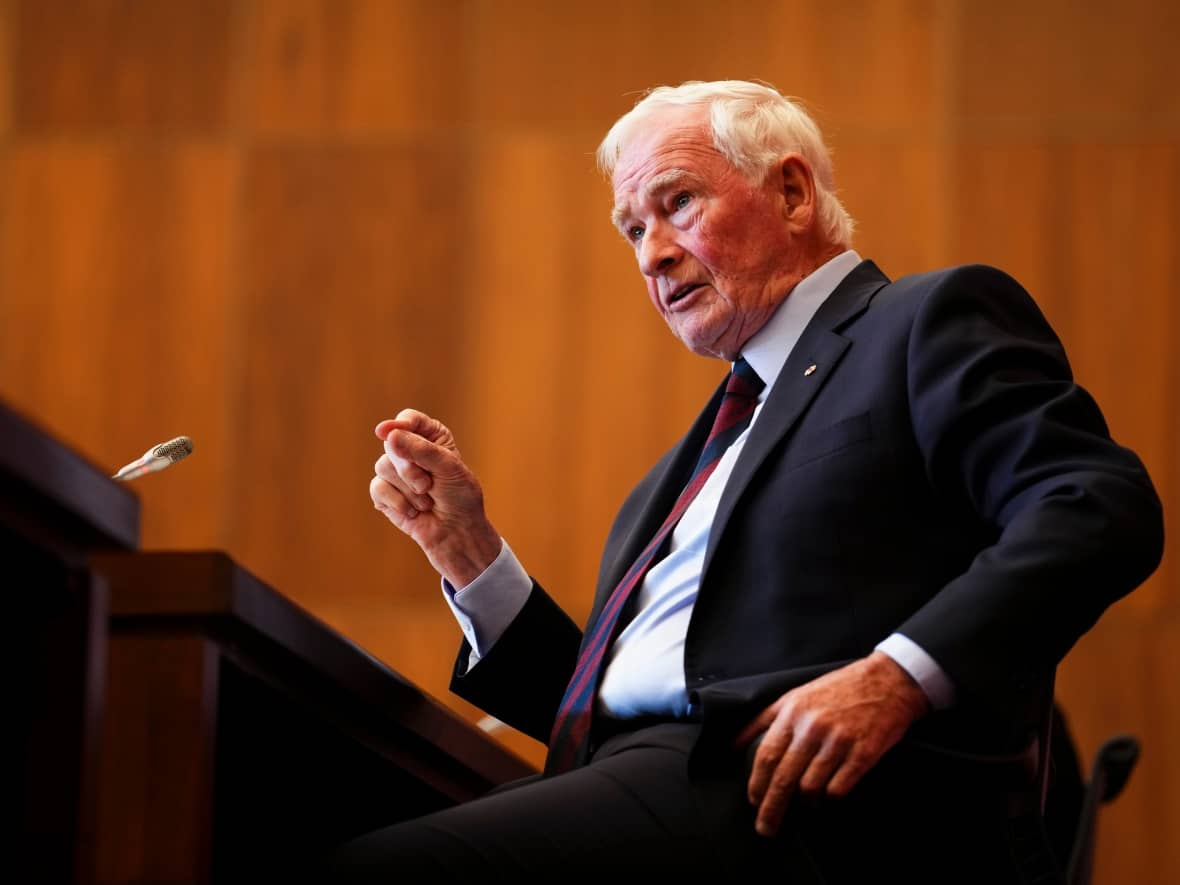NDP calls on Johnston to step down as special rapporteur on foreign interference

The NDP is introducing an opposition day motion calling on David Johnston to step down as the government's special rapporteur on foreign interference — only days after one of its MPs was told by CSIS she has been targeted by the Chinese government.
NDP Leader Jagmeet Singh said that while he has been careful not to attack the former governor general or his reputation, Johnston's background has led to doubts about his work as the special rapporteur.
"The appearance of bias is so high that it erodes the work that the special rapporteur can do," he told reporters outside the House of Commons on Monday.
WATCH | Singh calls on Johnston to step down
Since his appointment, Johnston has been accused of being unfit for the job because of his connections to Prime Minister Justin Trudeau.
The leaders of the Conservative and Bloc Québécois parties have both said Trudeau and Johnston are self-declared friends, and that their longstanding ties are too close to allow Johnston to judge the prime minister's actions.
The motion — which would be nonbinding if passed — is being introduced after NDP MP Jenny Kwan said she was briefed Friday by the Canadian Security Intelligence Service (CSIS).
Kwan said she was told she is an "evergreen" target of the Chinese government due to her support for democracy in Hong Kong and her statements against the persecution of China's Uyghur population.
"I will continue this fight, to bring this message to the House of Commons," Kwan said Friday.
While she said she couldn't go into details on how she is being targeted, Kwan added she was "dismayed" by Johnston's decision not to recommend a public inquiry into foreign interference.

Johnston released his first report last week, which suggested that a formal public inquiry would not serve to investigate allegations of foreign interference in the 2019 and 2021 federal elections because much of the classified information he has reviewed would need to remain secret.
After releasing his report, Johnston fielded reporters' questions about his ability to carry out the work of the special rapporteur.
Responding to Conservative claims that he is the prime minister's "ski buddy," Johnston said he went on five ski trips with the Trudeau family decades ago and that he sometimes drove the Trudeau children to their mother's home after the trips. He said he's had no unofficial contact with Justin Trudeau since Trudeau became a member of Parliament in 2008.
"Those are the facts with the so-called friendship, and the skiing," Johnston said.
The NDP motion calls on the government to appoint a replacement for Johnston who has the full support of the House.
When the governing Liberals announced their intention to appoint a special rapporteur, Trudeau said he would consult with the other parties.
When asked Monday, Singh said he didn't offer any specific names when he was first approached by the prime minister. Instead, he said he offered a list of traits the appointee should have, including an "unimpeachable character."
The motion is set to be debated in the House of Commons on Tuesday.
Liberals agreeing to Singh's conditions on top-secret information
Johnston's report recommended that opposition leaders be granted top secret clearances so they could also review the intelligence that informed Johnston's report.
But Conservative Leader Pierre Poilievre and Bloc Québécois Leader Yves-François Blanchet have refused the offer, saying they wouldn't be able to discuss the information publicly.
Singh said he would review the intelligence but only under certain conditions. The NDP leader said he wants a briefing from security officials on what he would be allowed to say publicly about the intelligence he is shown. He also asked that he be allowed to speak as freely as possible about his own conclusions after reviewing the information.
Singh also asked that members of his team be given the two briefing spots that Poilievre and Blanchet declined.
A government source told CBC on background that the Liberals would be accepting Singh's requests but the details are still being worked out.


